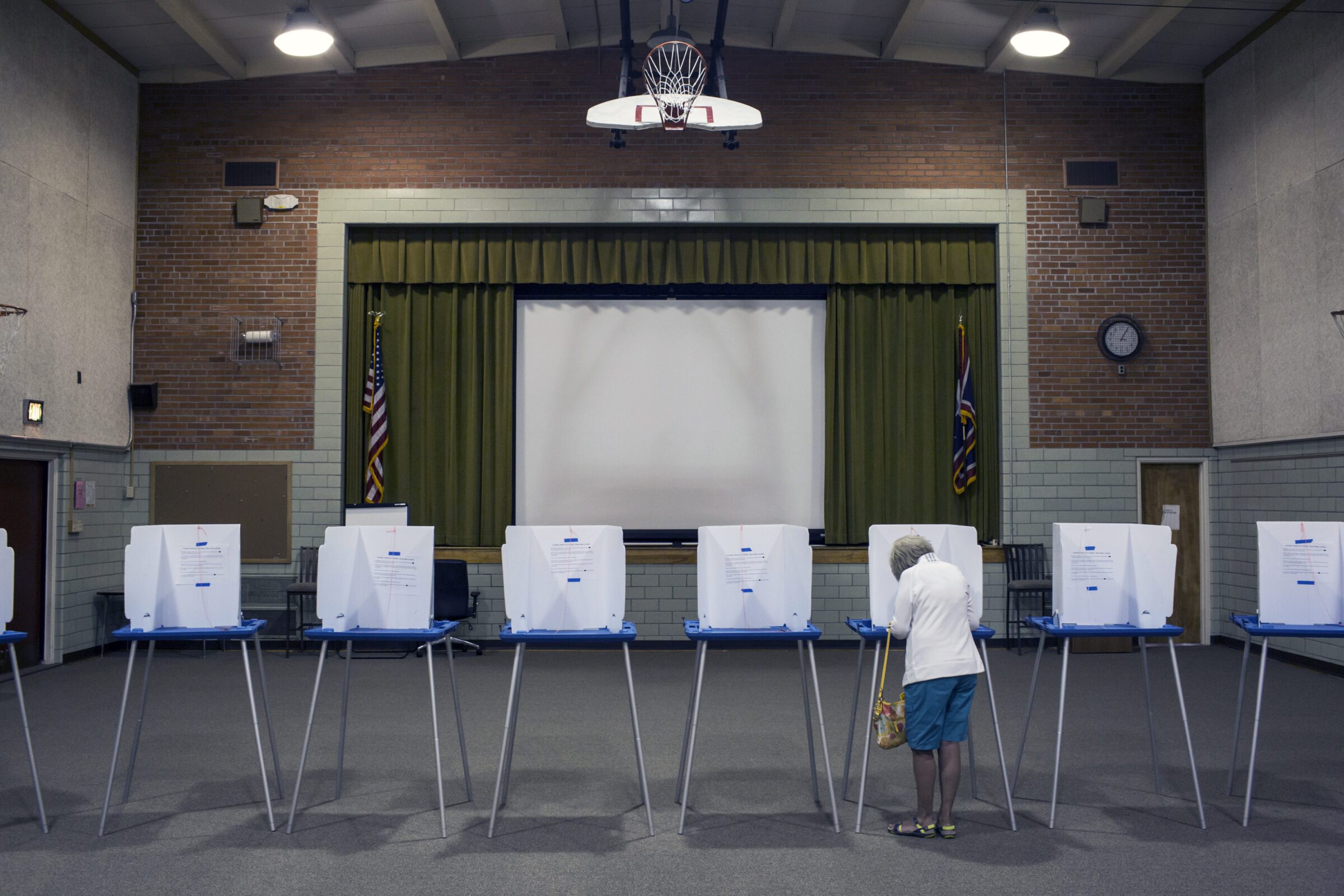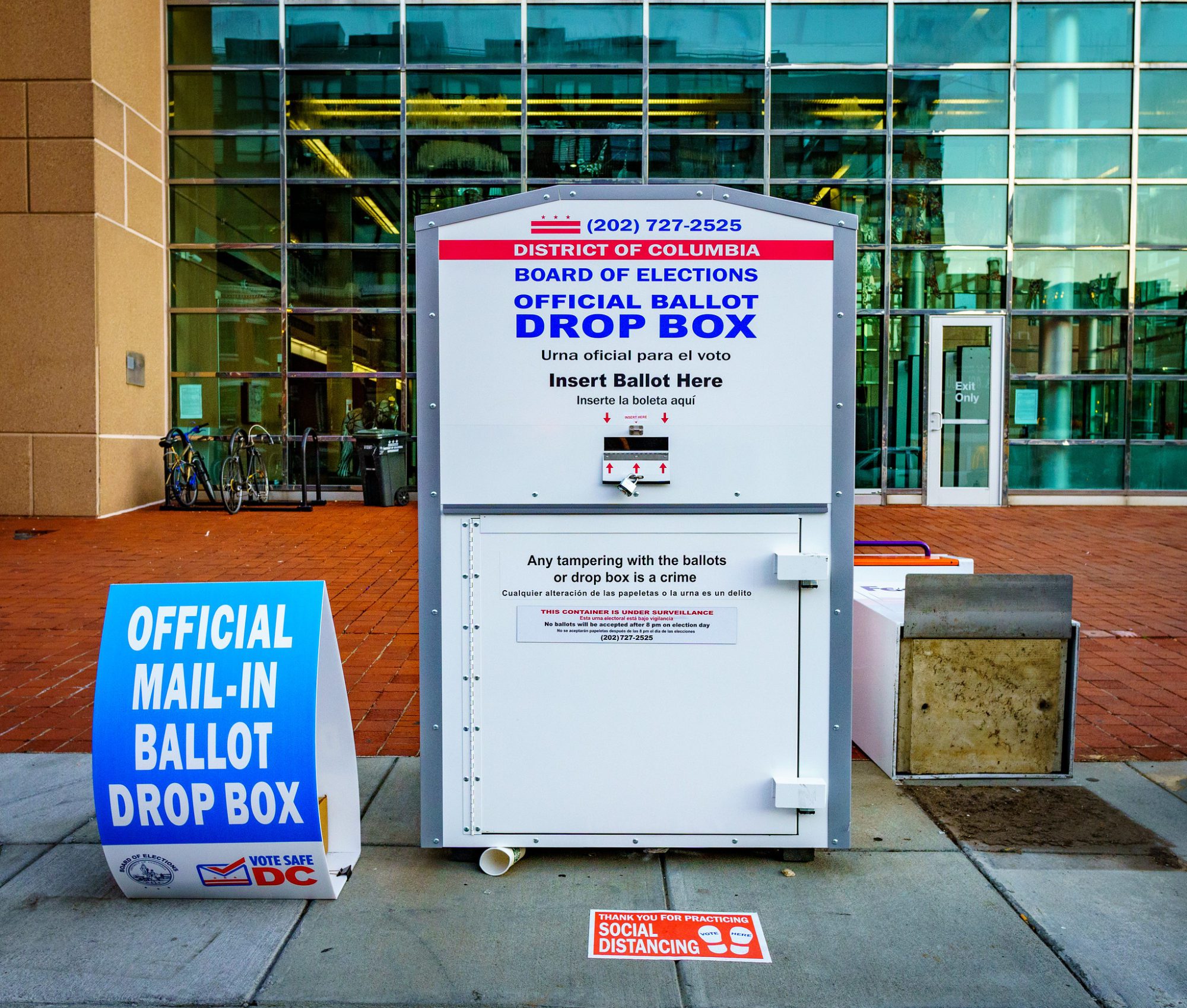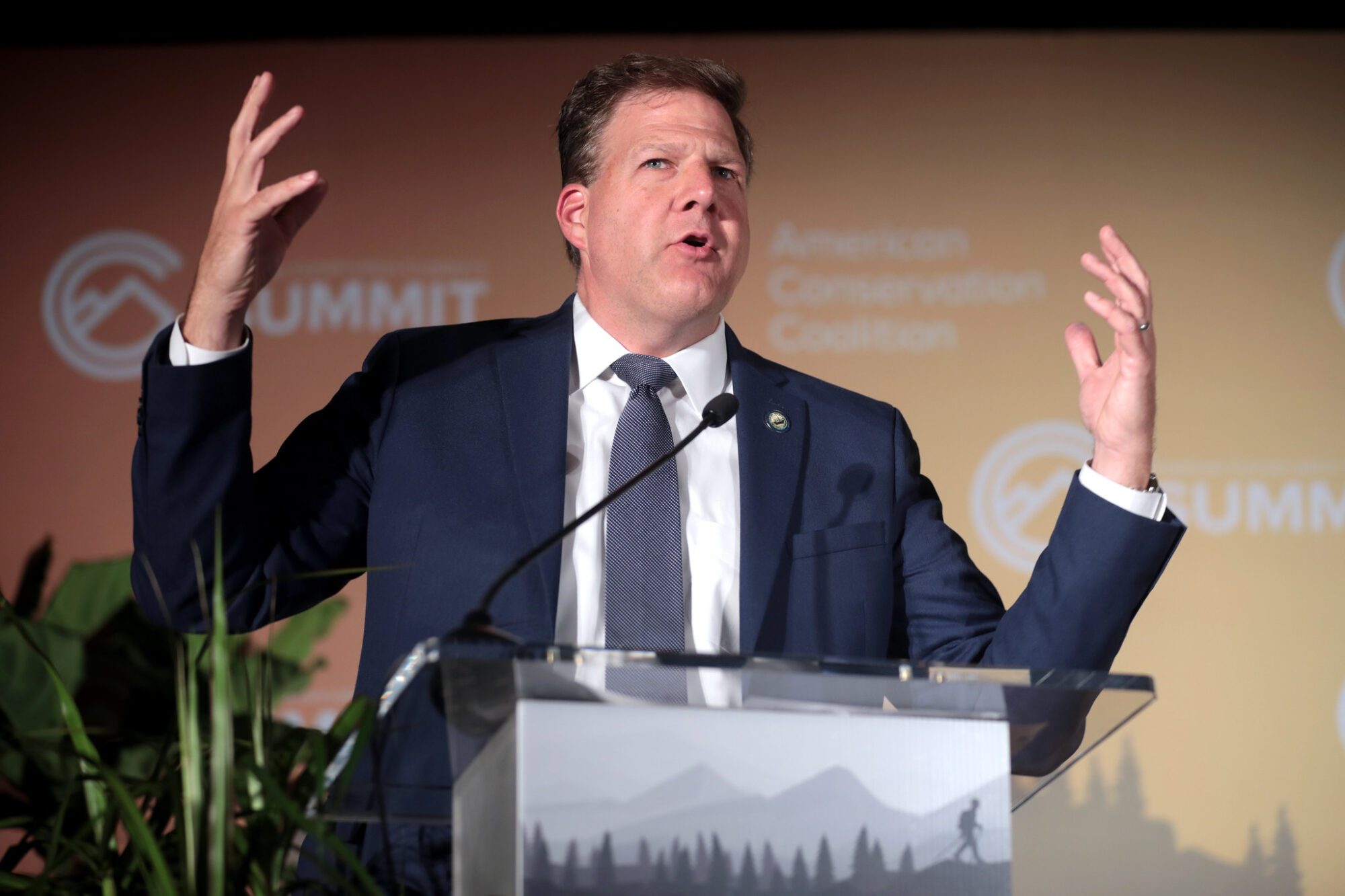Wyoming Is Now Requiring Would-be Voters to Document Their Citizenship
The rules were pushed by Wyoming’s ultraconservative secretary of state despite no pattern of noncitizen voting. A lawsuit warns it risks tripping up eligible citizens who wish to register.
| July 16, 2025

On the first of this month, Wyoming residents began facing some of the nation’s harshest rules when registering to vote, and additional barriers may still be coming.
Wyoming became the second state to require that all would-be voters provide physical documentation of their citizenship to vote in any election, as conservatives step up their nationwide push for policies to bar noncitizens from voter rolls, despite a lack of evidence this is a meaningful problem.
Opponents of Wyoming’s change warn that it will trip up people who are eligible to vote. They’ve filed a federal lawsuit to block it, making the case that it imposes unconstitutional burdens because some citizens don’t possess the required documents and now risk being rejected.
“While it has become politically fashionable to claim that the ‘integrity’ of American elections is being undermined by the participation of noncitizens, this is simply not true—including in Wyoming,” says the lawsuit, which was filed by the Equality State Policy Center, a Wyoming-based group that promotes fair elections. “Instead, the new restrictions will exclude citizens from the electoral process.”
The reform, House Bill 156, was adopted into law by the GOP-led legislature in March. But it is the brainchild of Secretary of State Chuck Gray, a Republican who became Wyoming’s chief election official in 2022 after campaigning on accusations that the nation’s elections are “rigged” and amplifying Donald Trump’s false claims that the 2020 presidential race was stolen from him due to large numbers of noncitizens voting illegally.
“Only US citizens and only Wyomingites should be voting in Wyoming elections—period,” Gray told Bolts after the bill passed the legislature. “We are proud of our work leading the nation on this issue.”
Gray has billed Wyoming’s proof-of-citizenship requirement the first of its kind in the country, heralding himself as a champion of election integrity. But New Hampshire adopted a similar reform in 2024, which created some stumbling blocks for Granite State voters during local elections in March, with the voting process taking several hours for some who struggled to meet the requirements.
When asked by Bolts why he nevertheless says that Wyoming was the first state with such a law, Gray attacked New Hampshire’s Secretary of State. He pointed to guidance that allows New Hampshire voters to provide “reasonable documentation that establishes that it is more likely than not that you are a United States citizen.” Gray told Bolts, “What does that even mean? Actual proof of citizenship means something. It isn’t just meaningless words on a piece of paper that do nothing to actually advance proof of citizenship, like the New Hampshire Secretary of State seems to think.”
New Hampshire Secretary of State David Scanlan, a Republican, told Bolts in response, “New Hampshire is not in a competition with Wyoming. Secretary Gray can believe what he wants.”
Wyoming’s constitution already prohibits voting for non-citizens, and a recent investigation in its most populous county—involving a joint probe by the local sheriff and ICE—found zero cases of noncitizen voting there in the 2024 election.
Still, Wyoming’s HB 156 requires that people who wish to register from July 1 onward specifically provide a passport, a birth certificate, driver’s license or REAL ID to prove their citizenship. If they don’t, they will not be able to get on the rolls and vote.
Critics of the law stress that women will be disproportionately affected by these restrictions; they may have changed their name due to marriage since they were issued these documents. Some voters in New Hampshire in March experienced difficulties voting due to a mismatch between their married name and their birth certificate, and legal experts are warning about the same issue in relation to the SAVE Act, a federal bill that passed the U.S. House in March that would impose proof-of-citizenship laws nationwide.
Wyoming and New Hampshire’s reforms mirror a law Kansas adopted in 2011 to require proof of citizenship. That law was struck down by a federal court in 2018. But in the interim, Kansas blocked roughly 30,000 U.S. citizens from registering to vote because they didn’t have the proper paperwork.
That’s equivalent to nearly 3 percent of the total number of ballots cast in the Kansas governor’s race that year.
Kansas officials were able to identify only 39 noncitizens who registered to vote over a 19-year period. “We are left with this incredibly slight evidence that Kansas’s interest in counting only the votes of eligible voters is under threat,” U.S. Circuit Judge Jerome Holmes, an appointee of President George W. Bush, wrote in his 2018 ruling. Meanwhile, Holmes added, the law “undisputedly has disenfranchised approximately 30,000 would-be Kansas voters.”
Gail Symons, a Wyoming Republican who advocates for making it easier to vote and runs the blog Civics307, worries that her state is in for the same fate.
“You’re saying that you’re okay with some unknown number of people being disenfranchised for an unproven risk of people who are not eligible… to get registered,” she told Bolts. “Where are your facts?”
But the Kansas law became something of a model for many conservatives. Kris Kobach, its architect, joined Donald Trump’s first administration in 2017 to co-chair a voter integrity commission after repeating Trump’s unsubstantiated claims that millions of noncitizens took part in the 2016 presidential race. This federal commission didn’t manage to find any evidence of voter fraud, though Trump still made the same claims in 2020 to contest his reelection loss. Later, in 2022, Arizona adopted a new proof-of-citizenship law but courts barred the state from applying it when voters submit a federal voter registration form, saying that the National Voter Registration Act does not allow such requirements. Arizona is now only enforcing that law when voters use state-provided forms.
Gray traveled to Arizona in the run-up to his campaign for secretary of state; he toured an election facility during an audit of the 2020 presidential race that was championed by conservatives who denied that Joe Biden had carried the state. He also played the widely–debunked film “2000 Mules,” which attributed Biden’s win to widespread fraud with mail-in ballots.
Since his election, Gray has gone toe-to-toe with county clerks in a thus-far unsuccessful push to outlaw ballot drop boxes. He was more successful in pushing for other changes, including measures that became law this year to outlaw ranked choice voting (“a woke clown show,” he has called it) and to ban election officials from distributing mail-in ballots when voters don’t specifically request one.

These laws passed this year in part due to major gains in last year’s legislative primaries by ultraconservative lawmakers. Wyoming’s Freedom Caucus became the first Freedom Caucus in the nation to outright control a state chamber. Gray, a founding member of the caucus, regularly appears alongside its leadership at press conferences and political events.
In 2023, Gray also oversaw a large purge of voter rolls. Based on longstanding state procedures that allow a voter’s registration to be canceled if they skip the most recent general election, the secretary of state’s office removed over 80,000 names, which was roughly 25 percent of Wyoming’s voter rolls. If anyone was purged by mistake, they’ll now have to meet Wyoming’s more restrictive requirements to reregister.
Gray is now preparing the next step of his agenda. Beyond mandating proof of citizenship, HB 156 also establishes a new ‘durational residency’ requirement, which says voters must have lived in the state for at least 30 days.
But the law left it to the secretary of state’s office to develop the rules as to which documents Wyomingites will have to use to prove their residency. Gray this spring proposed rules that say voters must establish that they’re a “bona fide resident of Wyoming for no less than 30 days” before Election Day by showing a document that lists a street address, such as a Wyoming drivers license.
After testimony from county clerks who stressed that many Wyoming residents use Post Office boxes, especially in rural areas, Gray revised the rules to allow IDs that list P.O. boxes instead of a street address—provided the voter includes their residential address on their voter registration form.
His revised rules must still be approved by Governor Mark Gordon, a Republican who has clashed with Gray over some voter laws in the past. But Gordon allowed HB 156 to become law without his signature earlier this year, when he could have vetoed it.
Gordon still outlined disagreements with HB 156 in a letter to Gray in March. Gordon’s letter also poked at some constitutional concerns, citing a congressional statute that states that no voters can be denied the chance to vote for president due to a residency requirement.
The governor also mentioned concerns that certain groups of voters may be disproportionately affected by HB 156. “Seniors may also be disenfranchised, as may rural residents who carry their wallets as they work may find their ID insufficient if it has suffered a drop on a shop floor.”
“Mark Gordon’s letter using the Left’s talking points on this issue shows his complete lack of understanding of election law,” Gray said in response to the governor’s criticism in a statement Bolts earlier this month.
Gray did not respond to Bolts questions on specific criticism of HB 156, including how it differs from the Kansas and Arizona laws that were struck from courts over the last decade.
The lawsuit against HB 156, which was brought by the Equality State Policy Center, a Wyoming-based organization that promotes fair elections, echoes some of Gordon’s worries. It cites research that shows that “women—as well as Hispanic, young, and low-income voters—are less likely to have acceptable documentation and, in many cases, face greater hurdles to obtaining it.”
Nationwide studies have shown that members of these groups are less likely to have voter IDs.
Marguerite Herman, the legislative lobbyist for the Wyoming League of Women’s voters, also stressed this issue. Voters with transient lives—due to seasonal work, being unhoused, or staying with family—will have more trouble providing documentation with their accurate address within a month of Election Day, she said.
Herman, like Gordon, also mentioned Wyoming’s fast-growing elderly population, which might have difficulty obtaining or locating physical documents; challenges include elderly residents who are not fit to drive having no up-to-date drivers’ license, and elderly women having bills and accounts under their husband’s name.
“I do want to express solidarity with our legislators who want to make sure our elections are safe,” Herman said, but added that “the effort to make things secure went in a direction that really restricted that access. Without access, it’s a kind of harm.”
“Why should having a stable address somehow be a qualification to vote?” Herman said. “It’s meaningless as far as to establish your ability to vote, your legitimacy as a voter.”
Sign up and stay up-to-date
Support us
Bolts is a non-profit newsroom that relies on donations, and it takes resources to produce this work. If you appreciate our value, become a monthly donor or make a contribution.




